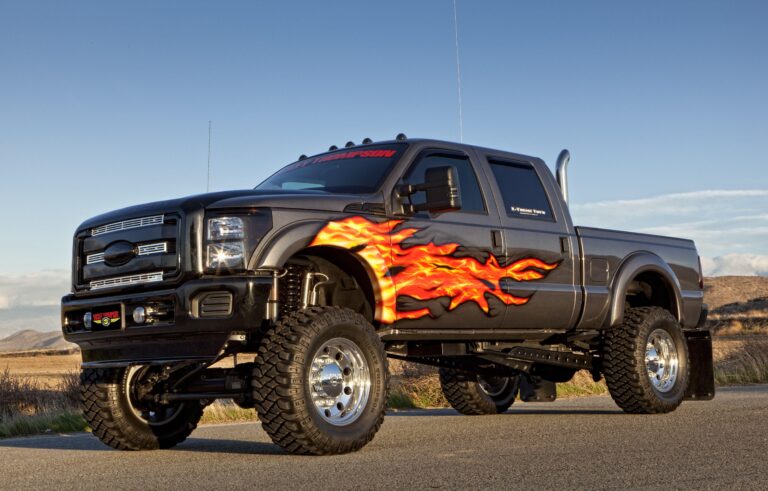Apu For Semi Trucks For Sale: Your Comprehensive Guide to Powering Up Your Rig
Apu For Semi Trucks For Sale: Your Comprehensive Guide to Powering Up Your Rig cars.truckstrend.com
In the demanding world of long-haul trucking, comfort, efficiency, and compliance are not just desirable – they are essential. Truckers spend countless hours on the road, often idling their engines to power climate control, lights, and electronics during mandated rest periods or while waiting at docks. This practice, while providing necessary amenities, guzzles fuel, racks up engine hours, and contributes to emissions. Enter the Auxiliary Power Unit (APU) – a game-changer for semi-truck drivers and fleet owners alike.
An APU for a semi-truck is, in essence, a compact, independent power system designed to provide electricity and climate control (heating and air conditioning) without needing to run the truck’s main engine. For anyone looking at "Apu For Semi Trucks For Sale," understanding this vital piece of equipment is the first step toward significant operational savings, enhanced driver comfort, and a greener footprint. This comprehensive guide will delve into everything you need to know about APUs, from their benefits and types to purchasing tips and installation considerations, helping you make an informed decision for your rig.
Apu For Semi Trucks For Sale: Your Comprehensive Guide to Powering Up Your Rig
What is an APU and Why Do Semi-Trucks Need One?
At its core, an Auxiliary Power Unit (APU) is a small engine (often diesel, but increasingly electric or battery-powered) or a battery bank system that provides power for a semi-truck’s sleeper cab when the main engine is off. Think of it as a mini generator and HVAC system rolled into one.
Core Functions of an APU:
- Climate Control: Provides heating and air conditioning, keeping the cab comfortable regardless of external temperatures.
- Electrical Power: Generates 12V DC and often 120V AC power for various onboard appliances like microwaves, refrigerators, TVs, laptops, and phone chargers.
- Battery Charging: Keeps the truck’s main batteries topped up, ensuring easy starting.

Why APUs are Essential for Truckers:
Truckers spend a significant portion of their time parked, whether waiting for loads, during mandatory rest breaks, or overnight. Without an APU, the only way to power the cab’s amenities and maintain a comfortable temperature is to idle the main engine. This "idle time" is problematic for several reasons:
- Fuel Consumption: A semi-truck engine can burn 0.8 to 1.5 gallons of fuel per hour while idling. Over an 8-10 hour rest period, this adds up significantly.
- Engine Wear: Extended idling puts unnecessary wear and tear on the main engine, accelerating maintenance needs and shortening its lifespan.
- Emissions: Idling engines produce substantial greenhouse gas emissions and noise pollution.
- Regulatory Compliance: Many states and municipalities have strict anti-idling laws with hefty fines. An APU allows compliance while maintaining comfort.

By providing an alternative to idling, APUs address these critical issues, making them an indispensable investment for modern trucking operations.
The Benefits of Investing in an APU

The advantages of installing an APU extend far beyond simple convenience, offering substantial returns for both owner-operators and large fleets.
- Significant Fuel Savings: This is often the primary driver for APU purchases. By eliminating engine idling, an APU can save hundreds, even thousands, of gallons of diesel fuel annually. A typical APU might consume 0.1 to 0.2 gallons per hour, a fraction of what the main engine burns.
- Extended Engine Life & Reduced Maintenance: Less idling means fewer operating hours on the main engine, delaying major overhauls and reducing wear on components like cylinder liners, pistons, and turbochargers. This translates to lower maintenance costs and a longer lifespan for your truck.
- Enhanced Driver Comfort and Productivity: A comfortable driver is a safe and productive driver. APUs provide consistent climate control, allowing drivers to get quality rest in a quiet, temperature-regulated environment. Access to power for personal electronics also improves morale.
- Regulatory Compliance: With an increasing number of anti-idling laws across North America, an APU ensures your operation remains compliant, avoiding costly fines and legal issues.
- Environmental Impact: Reducing engine idling significantly lowers greenhouse gas emissions (CO2, NOx, PM) and noise pollution, contributing to a cleaner, quieter environment.
- Improved Resale Value: Trucks equipped with well-maintained APUs often command a higher resale value, as they are seen as more efficient, comfortable, and compliant vehicles.
Types of APUs Available for Semi-Trucks
When exploring "Apu For Semi Trucks For Sale," you’ll encounter several distinct types, each with its own advantages and ideal use cases.
-
Diesel-Powered APUs:
- Description: These are the most common type, featuring a small diesel engine that runs a generator and a compressor for HVAC. They draw fuel directly from the truck’s main tanks.
- Pros: Robust heating and cooling, can run for extended periods, charges truck batteries effectively.
- Cons: Produce emissions and noise, require regular maintenance (oil changes, filters), heavier.
- Best For: Truckers who require continuous heating/cooling in extreme climates, or those who frequently park for long durations without shore power access.
-
Battery/Electric APUs (No-Idle APUs):
- Description: These systems utilize a bank of deep-cycle batteries to power an electric compressor for AC and sometimes a diesel-fired bunk heater for warmth. The batteries are recharged by the truck’s alternator while driving or via shore power.
- Pros: Zero emissions and silent operation when running on battery, minimal maintenance, lighter weight.
- Cons: Limited runtime (typically 8-12 hours for AC, depending on battery capacity and ambient temperature), heating often requires a separate diesel bunk heater, requires sufficient driving time for recharging.
- Best For: Drivers operating in areas with strict anti-idling laws, those prioritizing silence and environmental benefits, or routes with consistent driving time for recharging.
-
Hydronic/Coolant-Based APUs:
- Description: These systems use the truck’s existing coolant and fuel lines. A small burner heats the coolant, which is then circulated through a heat exchanger to warm the cab. Some models also offer an AC function by running an electric compressor.
- Pros: Efficient heating, integrates well with existing truck systems.
- Cons: Primarily focused on heating, AC capabilities can be limited, less common than other types.
- Best For: Drivers primarily concerned with heating in cold climates.
-
Generator-Based APUs (Integrated):
- Description: While often part of a diesel APU, some systems are purely small generators designed to provide 120V AC power for appliances, with separate heating/cooling solutions.
- Pros: High AC power output for various electronics.
- Cons: Can be noisy, may not include integrated HVAC, often less fuel-efficient than dedicated APU systems for climate control.
- Best For: Truckers needing significant 120V power for tools or specialized equipment.
Key Considerations When Buying an APU
Navigating the "Apu For Semi Trucks For Sale" market requires careful thought to ensure you choose the right unit for your specific needs.
- Budget: New APUs can range from $8,000 to $15,000+, plus installation. Used units offer significant savings but come with risks.
- Fuel Type & Climate: Match the APU to your primary operational needs. Diesel APUs are robust for all climates, while electric APUs shine in warmer climates (with separate heaters for cold).
- Noise Level: Diesel APUs produce noise, though modern units are much quieter. Electric APUs are silent. Consider your personal preference and any noise restrictions.
- Weight and Size: APUs add weight to your truck, which can impact payload capacity. Ensure the unit fits your truck’s chassis space.
- Maintenance Requirements: Diesel APUs require regular oil changes, filter replacements, and other engine maintenance. Electric APUs have minimal maintenance but rely on battery health.
- Installation: Professional installation is highly recommended for safety and proper functioning, adding to the overall cost. Some units are easier to install than others.
- Warranty: A strong warranty from the manufacturer or seller provides peace of mind, especially for new units.
- Features: Look for features like automatic start/stop (based on temperature or battery voltage), shore power connectivity, battery charging capabilities, and remote controls.
Where to Find APUs for Sale
The market for "Apu For Semi Trucks For Sale" is diverse, offering both new and used options.
- Truck Dealerships: Many new and used truck dealerships offer APUs, often with installation services. They might have bundled deals with truck purchases.
- Dedicated APU Manufacturers/Dealers: Companies like Thermo King, Carrier Transicold, RigMaster, Webasto, and Pony Pack have extensive dealer networks specializing in APU sales and service.
- Online Marketplaces: Websites like eBay, Facebook Marketplace, and specialized trucking forums often list used APUs. Exercise caution and thoroughly vet sellers.
- Used Truck & Trailer Dealers: These dealers sometimes have trucks equipped with APUs or sell standalone used units.
- Truck Stops & Service Centers: Larger truck stops or service chains may offer APU sales and installation.
Tips for Buying a Used APU
While a used APU can offer significant savings, it’s crucial to approach the purchase with diligence to avoid future headaches.
- Thorough Inspection: Visually inspect the unit for leaks, rust, corrosion, cracks, or signs of impact damage. Check hoses, belts, and wiring.
- Run the Unit: If possible, have the seller demonstrate the unit running. Listen for unusual noises, check the HVAC function (both heating and cooling), and ensure all controls work.
- Check Hours Meter: Similar to a truck’s odometer, an hour meter gives an indication of the APU’s usage. Lower hours generally mean less wear.
- Service Records: Ask for maintenance records. A well-maintained unit is a better investment.
- Battery Health (for Electric APUs): If buying an electric APU, inquire about the age and condition of the batteries. Battery replacement can be costly.
- Compatibility: Ensure the APU is compatible with your truck’s electrical system and chassis.
- Professional Inspection: Consider having a trusted mechanic specializing in APUs inspect the unit before purchase.
- Negotiate: Don’t be afraid to negotiate the price, especially if you identify any potential issues.
Installation and Maintenance
Proper installation is paramount for an APU’s performance and safety. While some mechanically inclined owner-operators might attempt a DIY installation, professional installation by certified technicians is highly recommended. It ensures correct integration with the truck’s fuel, electrical, and HVAC systems, preventing potential issues like fuel leaks, electrical shorts, or inefficient operation.
Regular Maintenance is Key:
Like any engine or complex system, an APU requires routine maintenance to ensure longevity and optimal performance.
- Diesel APUs: Regular oil and filter changes, fuel filter replacement, belt inspection, coolant checks, and general engine tune-ups.
- Electric APUs: Battery testing and replacement (as needed), cleaning of coils and filters, and checking electrical connections.
Adhering to the manufacturer’s recommended maintenance schedule will maximize your APU’s lifespan and return on investment.
Table Price: Apu For Semi Trucks For Sale (Estimated Ranges)
| APU Type / Condition | Price Range (USD) | Key Features Included | Notes |
|---|---|---|---|
| New Diesel APU | $10,000 – $16,000 | Engine, Generator, AC Compressor, Heater, Fuel Lines, Control Panel | Excludes installation. Top brands like Thermo King, Carrier, RigMaster. |
| Used Diesel APU | $3,000 – $8,000 | Varies by condition and hours. May include basic components. | Condition highly variable. Inspect thoroughly. Installation not included. |
| New Electric APU | $8,000 – $14,000 | Battery Bank, Electric AC Compressor, Inverter, Control Panel, Charger | May require separate diesel bunk heater for extreme cold. Excludes installation. |
| Used Electric APU | $2,500 – $7,000 | Varies by battery age and overall condition. | Battery health is crucial; replacement can be costly. |
| New Hydronic/Coolant Heater | $2,000 – $5,000 | Heater Unit, Pumps, Control Panel | Primarily for heating; some offer limited AC. |
| Professional Installation | $1,500 – $3,000 | Labor, Brackets, Hoses, Wiring, Refrigerant Charging | Varies by complexity and shop rates. |
| Annual Maintenance (Diesel APU) | $300 – $600 | Oil change, filter replacement, general inspection | Varies based on usage and parts needed. |
| Battery Replacement (Electric APU) | $800 – $2,000+ | Cost for new deep-cycle batteries | Required every 2-5 years depending on usage and type. |
Prices are estimates and can vary significantly based on brand, features, region, market demand, and the specific condition of used units.
Practical Advice and Actionable Insights
- Calculate Your ROI: Before purchasing, estimate your potential fuel savings and reduced engine wear against the APU’s cost (unit + installation). Many truckers find the payback period to be surprisingly short, often 1-2 years.
- Match APU to Your Needs: Don’t overbuy or underbuy. If you primarily operate in hot climates, a robust AC is critical. If you’re always in sub-zero temperatures, a strong heater is paramount.
- Factor in Installation Costs: The sticker price of an APU is just one part of the equation. Always get a quote for professional installation.
- Consider Future Regulations: As environmental regulations tighten, electric or low-emission APUs may become more advantageous.
- Don’t Skimp on Maintenance: A well-maintained APU will serve you reliably for years, while neglect can lead to costly breakdowns.
Frequently Asked Questions (FAQ) about APUs for Semi-Trucks
Q1: How much fuel can an APU save me annually?
A1: A typical semi-truck idling for 8-10 hours a day can consume 8-15 gallons of fuel. An APU uses 1-2 gallons for the same period. This translates to potential savings of 2,000-4,000 gallons per year, or $8,000-$16,000+ annually, depending on fuel prices.
Q2: What is the typical lifespan of an APU?
A2: With proper maintenance, a diesel APU can last 10,000 to 20,000+ hours, equivalent to many years of use. Electric APU battery banks typically last 2-5 years before needing replacement, though the core system can last much longer.
Q3: Are APUs loud?
A3: Modern diesel APUs are significantly quieter than a truck’s main engine idling, often operating at noise levels comparable to a refrigerator. Electric APUs are virtually silent when running on battery power.
Q4: Can an APU really replace my truck’s main engine for all power needs?
A4: For cab climate control and powering typical 12V and 120V appliances, yes. An APU is not designed to power the truck for driving or heavy-duty operations like refrigeration units for trailers (unless specifically designed for that purpose).
Q5: Is it legal to idle my truck if I don’t have an APU?
A5: It depends on the state and local municipality. Many areas have strict anti-idling laws, often limiting idling to 3-5 minutes. Fines can be substantial. An APU helps you comply with these regulations.
Q6: Do APUs add significant weight to my truck?
A6: Yes, APUs add weight. Diesel APUs typically weigh 300-500 lbs. Electric APUs can be lighter or similar, depending on the battery bank size. This weight must be considered in relation to your payload capacity.
Q7: Can I install an APU myself?
A7: While some experienced mechanics might attempt it, professional installation is strongly recommended. It involves complex electrical, fuel, and refrigerant connections that, if done incorrectly, can lead to safety hazards, warranty voidance, and operational issues.
Conclusion
The decision to invest in an APU for your semi-truck is a strategic one that promises a compelling return. Whether you’re an owner-operator seeking to maximize profits and comfort or a fleet manager aiming for greater efficiency and compliance, "Apu For Semi Trucks For Sale" represents an opportunity to significantly enhance your trucking operations. By reducing fuel consumption, extending engine life, boosting driver comfort, and ensuring adherence to anti-idling regulations, an APU transforms idle time from a costly necessity into a productive, comfortable, and environmentally responsible break. It’s an investment in the longevity of your rig, the well-being of your drivers, and the profitability of your business.




